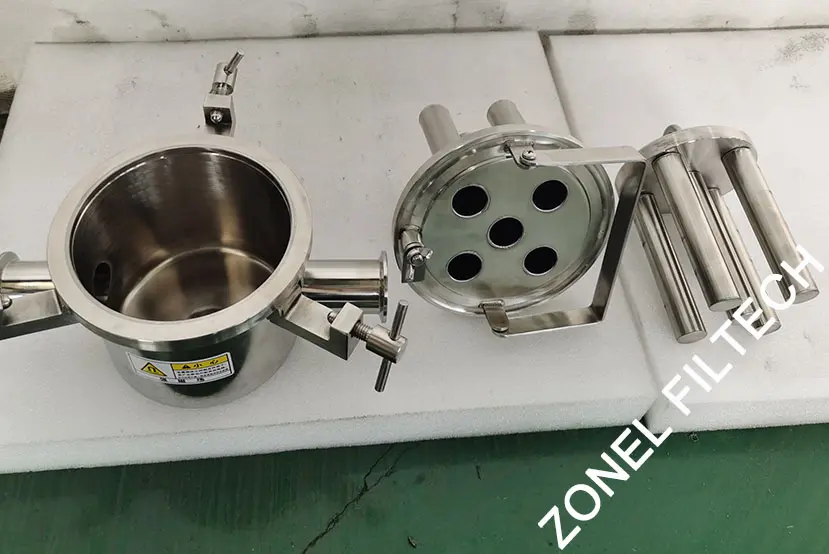In industries where fluid contamination poses significant operational challenges, filtration systems play a crucial role in maintaining equipment efficiency and prolonging service life. Two common filtration methods used today are magnetic filters and traditional filtration systems (mechanical, chemical, or physical filters). While both aim to remove contaminants, their working principles, efficiency, cost, and maintenance differ significantly.
This article explores the differences between magnetic filtration and traditional filtration, comparing their advantages, limitations, and best use cases.

Table of Contents
ToggleHow Do Magnetic Filters Work?
Magnetic filters use powerful magnets (usually rare-earth or ceramic magnets) to attract and remove ferrous (iron-containing) contaminants from fluids such as oils, coolants, hydraulic fluids, and water systems. Because these filters don’t require throwaway media, they have a smaller environmental effect and lower maintenance expenses.
Key Components of Magnetic Filters:
- High-strength magnets (Neodymium or Ferrite)
- Metal Housing for durability
- Flow Chamber to direct fluid past magnets
- Easy-Clean Design for quick removal of trapped contaminants
Advantages of Magnetic Filters:
✅ No Consumables – Unlike paper or mesh filters, magnetic filters do not require replacement elements.
✅ Effective on Fine Particles –able to trap sub-micron-sized ferrous particles.
✅ Low Maintenance – Simple cleaning process without disposal costs.
✅ Long Lifespan – Durable magnets do not degrade over time.
✅ Environmental Benefits – No disposable filter media, reducing waste.
Limitations of Magnetic Filters:
❌ Only Works on Ferrous Contaminants – Ineffective against non-magnetic debris such as dirt, plastics, and non-ferrous metals.
❌ Higher Initial Cost – more costly up front than some conventional filters.
❌ Size Limitations – May not be practical for very large-scale filtration needs.
How Do Traditional Filtration Systems Work?
Traditional filtration systems use mechanical, chemical, or physical barriers to trap contaminants. Depending on the filtering technique, these systems are available in several varieties.
Types of Traditional Filters:
- Mechanical Filters (Screen, Mesh, or Cartridge Filters) – Capture particles based on size using porous materials.
- Chemical Filters (Activated Carbon, Resin, Ion-Exchange) – Remove contaminants via chemical absorption or ion exchange.
- Depth Filters (Sand, Fiber, Paper) – Capture particles within a porous material for fine filtration.
- Centrifugal Separators – Use spinning motion to separate contaminants by density.
Advantages of Traditional Filters:
✅ Removes a Wide Range of Contaminants – Effective against dust, dirt, sludge, and non-magnetic metals.
✅ Widely Available – Comes in various types to suit different industries.
✅ Lower Initial Cost – Many disposable filters have a lower purchase price.
Limitations of Traditional Filters:
❌ Frequent Replacement Needed – Disposable filters require regular changes, increasing cost and waste.
❌ Potential Flow Restriction – Clogged filters reduce efficiency and may require frequent cleaning.
❌ Less Effective on Fine Particles – Some filters struggle to remove sub-micron contaminants.
❌ Higher Maintenance & Waste – Requires proper disposal and replacement scheduling.
Performance Comparison: Magnetic vs. Traditional Filters
Below is a performance comparison chart between magnetic filters and traditional filtration systems:
| Criteria | Magnetic Filters | Traditional Filters |
| Contaminant Removal | Ferrous metals only | Ferrous & non-ferrous |
| Particle Size | Removes sub-micron particles | Most effective for particles >5 microns |
| Maintenance | Low (simple cleaning) | High (replacement needed) |
| Operating Cost | Low (no consumables) | High (frequent replacements) |
| Lifespan | Long (durable magnets) | Shorter (disposable elements) |
| Flow Restriction | Minimal | Can be significant when clogged |
| Initial Cost | Higher upfront | Lower upfront |
| Environmental Impact | Minimal waste | Creates waste from used filters |
Applications: When to Use Magnetic vs. Traditional Filters
The choice between magnetic filters and traditional filtration systems depends on the industry and application.
Best Applications for Magnetic Filters:
✔ Hydraulic Systems – Removes metal particles from oils to prevent wear.
✔ Metalworking & Machining – Extends coolant life by capturing iron shavings.
✔ Automotive & Heavy Machinery – Protects engine components from metal contamination.
✔ Industrial Lubrication Systems – Keeps lubricants clean for optimal performance.
✔ Power Generation – used to stop metal wear in generators and turbines.
Best Applications for Traditional Filters:
✔ Water Treatment – Removes sediment, chemicals, and organic matter.
✔ Pharmaceutical & Food Processing – guarantees adherence to health regulations and purity.
✔ HVAC & Air Filtration – Captures dust, mold, and allergens.
✔ Oil & Gas Industry – Filters out mixed contaminants beyond ferrous metals.
✔ Household & Commercial Use – Common in drinking water filters and air purifiers.
Cost Analysis: Magnetic Filters vs. Traditional Filters
A cost analysis shows how maintenance expenses accumulate over time:
Comparison of 5-Year Costs for a Manufacturing Plant:
| Expense Category | Magnetic Filters | Traditional Filters |
| Initial Cost | $1,500 | $500 |
| Annual Maintenance | $100 (cleaning) | $400 (replacements) |
| Filter Replacement Cost (5 years) | $0 | $2,000 |
| Total 5-Year Cost | $2,000 | $4,500 |
Key Takeaway:
Because they require less maintenance and don’t require filter replacements, magnetic filters are more expensive initially but provide substantial long-term savings.
Conclusion: Which Is Better?
The better filtration choice depends on your specific needs and contaminants.
✔ Choose Magnetic Filters if: You need a low-maintenance, cost-effective solution for removing ferrous contaminants in industrial applications.
✔ Choose Traditional Filters if: You require broad-spectrum filtration to remove non-ferrous particles, chemicals, and organic contaminants.
Final Thought:
Many industries combine both filtration systems, using magnetic filters as a pre-filter to capture metal debris before fluids pass through traditional filters. This hybrid approach maximizes efficiency and extends the life of traditional filters, reducing overall costs.
